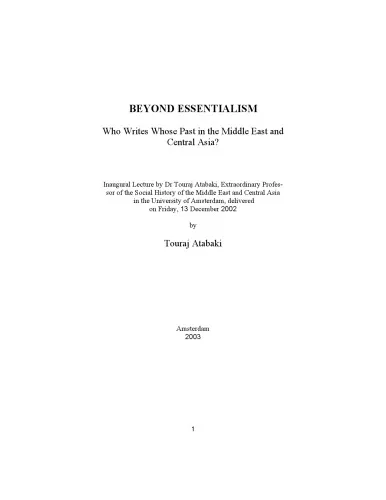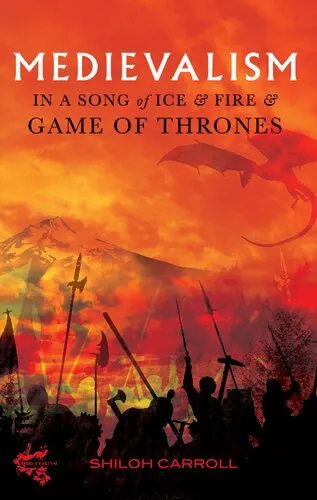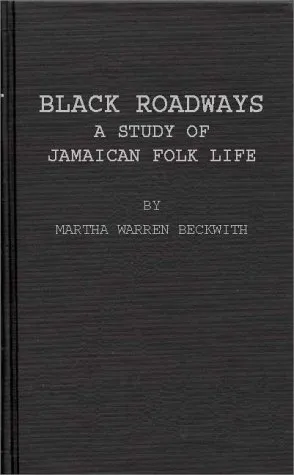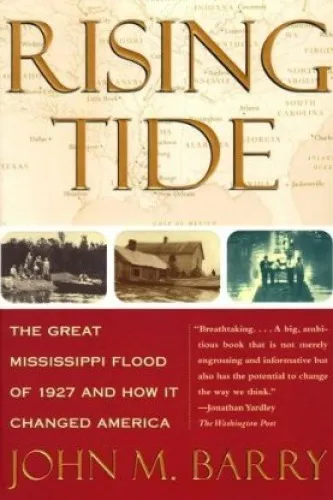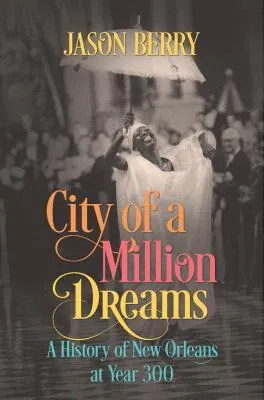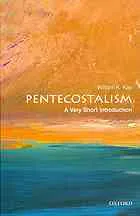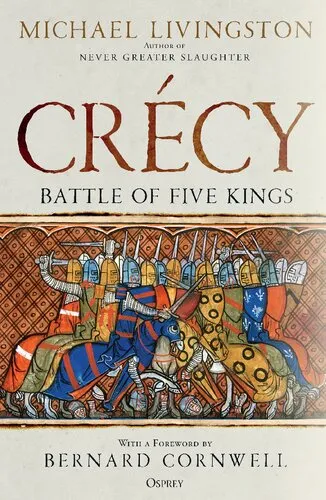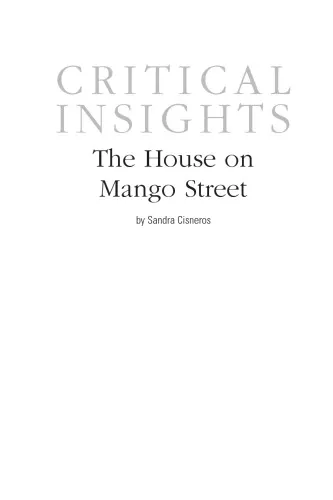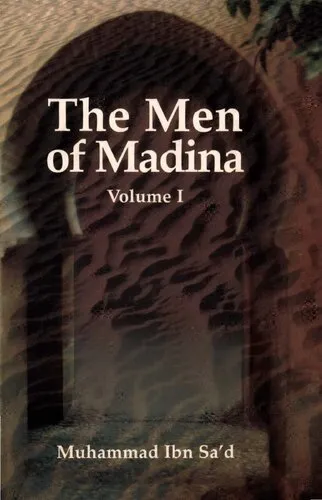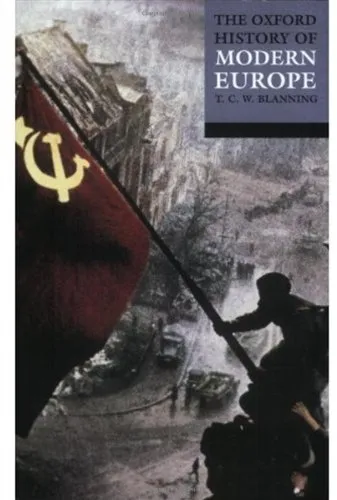Beyond essentialism: who writes whose past in the Middle East and Central Asia?
4.9
بر اساس نظر کاربران

شما میتونید سوالاتتون در باره کتاب رو از هوش مصنوعیش بعد از ورود بپرسید
هر دانلود یا پرسش از هوش مصنوعی 2 امتیاز لازم دارد، برای بدست آوردن امتیاز رایگان، به صفحه ی راهنمای امتیازات سر بزنید و یک سری کار ارزشمند انجام بدینکتاب های مرتبط:
Analytical Summary
In Beyond essentialism: who writes whose past in the Middle East and Central Asia, readers are invited into a deep and challenging examination of how historical narratives in these regions are formed, contested, and reinterpreted over time. This scholarly work navigates through the layered terrains of identity, power, and memory, providing a lens through which both academics and professionals can reassess commonly held assumptions about the past.
Avoiding reductionist explanations, the book interrogates the notion of "essentialism"—the idea that cultures, peoples, or histories can be understood through static, inherent characteristics. By juxtaposing Middle Eastern and Central Asian contexts, the text underscores the plurality of voices that contribute to historical writing, and the political circumstances that shape which voices are amplified or silenced. It engages critically with historiography in both regions, situating them within broader global debates on narrative authority.
Structured around thematic explorations, including colonial legacies, national identity formation, and transnational exchanges, the book pays close attention to authorship: who gets to write, whose stories become canon, and whose accounts remain marginalized. From the archives to oral traditions, it considers diverse sources and methods, while acknowledging that "history" in such contested spaces is always both an intellectual and political act.
Key Takeaways
This text delivers more than historical facts; it offers readers a framework for critically engaging with narratives of the Middle East and Central Asia.
Firstly, it challenges the temptation to see these regions through essentialist paradigms, advocating instead for a dynamic view grounded in change, interaction, and multiplicity. Secondly, it reveals the mechanisms—both institutional and informal—through which historical authority is constructed. Thirdly, it illuminates how local voices navigate global scholarly discourses, asserting agency in the representation of their pasts. Fourthly, it equips readers with conceptual tools for discerning bias, examining sources, and questioning dominant narratives.
By doing so, the book resonates with ongoing debates in historiography, anthropology, and political science, ensuring that its insights are valuable across disciplinary boundaries.
Memorable Quotes
“History in these regions is less a record of what happened, than a negotiation over what is allowed to be remembered.”Unknown
“Essentialism closes the door to dialogue; confronting it opens the possibility for shared pasts.”Unknown
“To understand who writes whose past, one must first ask: who benefits from its telling?”Unknown
Why This Book Matters
At a time when political and cultural tensions saturate discourse on the Middle East and Central Asia, this book serves as an antidote to oversimplification.
By confronting essentialist thinking head-on, it fosters nuanced comprehension that is indispensable for researchers, policymakers, and educators alike. It does not shy away from the complex interplay between local agency and external influence, showing how both shape narratives. Importantly, it also bridges the gap between theory and praxis—providing analytical insights alongside practical implications for engaging with sources and stories from these regions.
Information on the publication year and any awards is unavailable due to no reliable public source, but the intellectual depth of the text ensures its enduring relevance regardless of these details.
Inspiring Conclusion
In reflecting on Beyond essentialism: who writes whose past in the Middle East and Central Asia, readers are equipped not only with scholarly insights but also with a renewed awareness of the stakes inherent in historical authorship.
The work invites you to question, to dialogue, and to resist comfortable narratives. For academics, professionals, and thoughtful readers, the challenge is clear: engage with histories not as fixed truths, but as evolving conversations in which multiple voices must be heard. By sharing, teaching, and discussing these ideas, you participate in a broader movement toward more inclusive and accurate storytelling. The next step is yours—read deeply, analyze critically, and let these perspectives inform your own work and understanding.
دانلود رایگان مستقیم
شما میتونید سوالاتتون در باره کتاب رو از هوش مصنوعیش بعد از ورود بپرسید
دسترسی به کتابها از طریق پلتفرمهای قانونی و کتابخانههای عمومی نه تنها از حقوق نویسندگان و ناشران حمایت میکند، بلکه به پایداری فرهنگ کتابخوانی نیز کمک میرساند. پیش از دانلود، لحظهای به بررسی این گزینهها فکر کنید.
این کتاب رو در پلتفرم های دیگه ببینید
WorldCat به شما کمک میکنه تا کتاب ها رو در کتابخانه های سراسر دنیا پیدا کنید
امتیازها، نظرات تخصصی و صحبت ها درباره کتاب را در Goodreads ببینید
کتابهای کمیاب یا دست دوم را در AbeBooks پیدا کنید و بخرید
1238
بازدید4.9
امتیاز0
نظر98%
رضایتنظرات:
4.9
بر اساس 0 نظر کاربران
Questions & Answers
Ask questions about this book or help others by answering
No questions yet. Be the first to ask!
